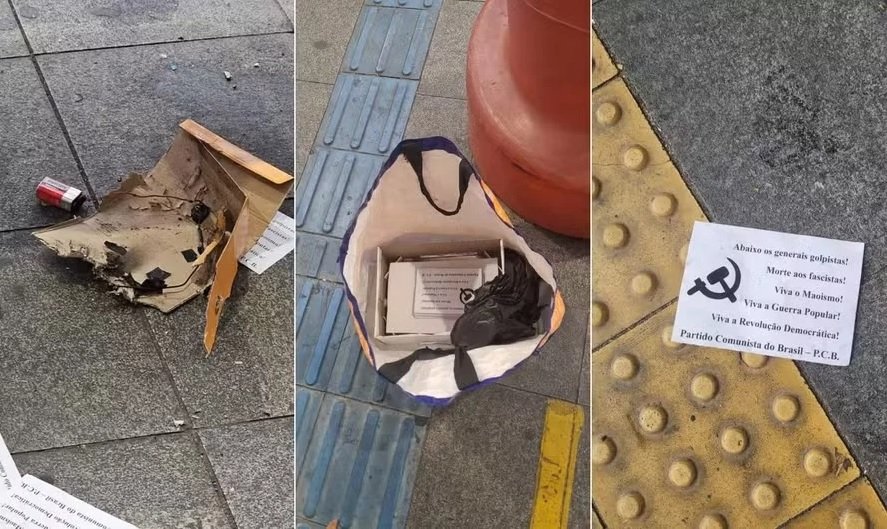A homemade bomb exploded on Tuesday morning (12/03) at the Pinheiros Terminal in the West Zone of São Paulo, prompting authorities to close the location for safety reasons. The device was placed inside a bag and detonated on its own. The bomb squad was called in and safely detonated a second explosive found in another bag. Fortunately, no injuries were reported.
This Content Is Only For Subscribers
To unlock this content, subscribe to INTERLIRA Reports.
Man Left the Bomb
Security cameras captured footage of a man leaving the bags in the queue at the 209P-10 bus stop (Cachoeirinha – Pinheiros Terminal) before quickly leaving the scene. Shortly after, one of the bags exploded on its own.
Two Suspects
According to 1st Lieutenant Vitor Capelo Haddad of GATE (Special Tactical Actions Group), authorities believe at least two individuals were involved in the incident. The motive behind the attack remains unclear, and investigations are ongoing.
Political Pamphlets
The explosive devices contained political pamphlets allegedly associated with the PCdoB (Communist Party of Brazil). However, the materials featured acronyms and symbols that differ from those used by the PCdoB, leading to suspicions of false attribution. The PCdoB State Directory denied any involvement in the incident.
One of the pamphlets read: “Down with the coup generals! Death to the fascists! Long live Maoism! Long live the People’s War! Long live the Democratic Revolution! Communist Party of Brazil – PCB.”.
Analysis:
The Pinheiros Terminal bombing highlights a concerning escalation in the use of explosive devices as a tool for political intimidation or misinformation in Brazil. While no injuries were reported, the attack underscores the growing threat of politically motivated violence and the potential for radical groups—or bad actors seeking to manipulate political narratives—to exploit public spaces for destabilization.
This case echoes previous incidents, such as the failed bombing attempt in Brasília in December 2022, when a man linked to extremist groups placed explosives near the Brasília International Airport in an attempt to generate chaos and contest election results. Similarly, in 2018, an attack on the headquarters of the PT (Workers’ Party) in Curitiba used explosives to intimidate political opponents. The presence of pamphlets falsely attributed to a political party in the Pinheiros case raises red flags about disinformation tactics aimed at inciting ideological conflicts or shifting blame.
To counteract these threats, security forces must prioritize preventive intelligence, enhance monitoring of radicalized groups, and coordinate investigative efforts to identify those responsible. Additionally, authorities should strengthen public awareness and response protocols to ensure that the population remains vigilant against suspicious activities without falling victim to misinformation campaigns.




